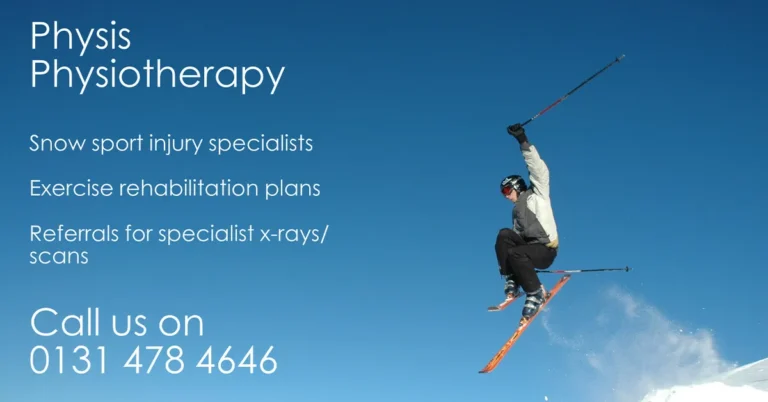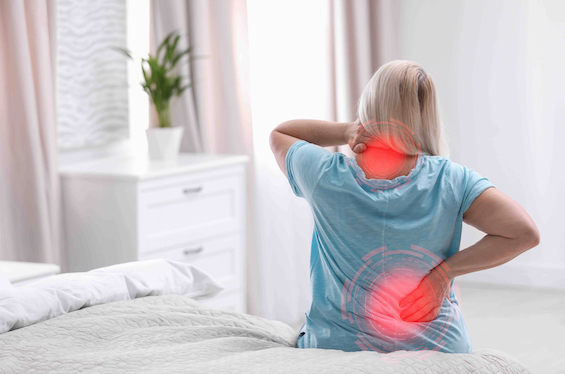Most common ski injuries:
Ski injuries make up a reasonable percentage of the sports injuries we see at Physis at this time of year.
- Knee injuries are the most common for skiers. The structures most at risk are the Anterior Cruciate Ligament (ACL) and the Medial Collateral Ligament (MCL).
- Head injuries (usually minor ones) are next.
- Shoulder injuries such as dislocations or fractures can occur due to falls.
- Wrist and thumb injuries such as Skiers thumb can occur when skiing and not just at Hillend!
- Back sprains occur often as secondary injuries during a fall.
So what can you do to reduce the risk?
Top tips to prevent ski injuries:
- Get fit before you go. We often see people 2 weeks before their holiday coming into check on the knee they injured 6 months ago! Previous injury is the greatest predictive factor for future injury, so get it checked and sorted sooner. If you have no niggling injuries then simply get fitter in the gym. A 12 week program of strength and fitness will reduce fatigue (how many of us normally ski 8 hours a day for 5 days in a row?) and help prevent injury.
- Wear the correct ski equipment. The right size boots, not too worn and the right ski’s to suit your ability are all key requirements.
- Adjust the bindings. Get it wrong and your holiday can be ruined.
- Wear a helmet.
- Rest when tired. Fatigue leads to mistakes in technique and loss of control and hence injury.
So even after all of that even the most sensible and accomplished skiers get injured sometimes, so what is the best advice to treat them?
Self management of ski injuries:
- If you cannot move the area properly or fully weight bear then stop skiing before you do more damage!
- As the injury is acute the best way to start is to apply ice. (see our blog on ice application)
- Take pain relief medication initially then after 48 hours switch to anti-inflammatory medication. (seek advice from a Pharmacist or Doctor before doing this)
- Move within the limits of pain. It will stiffen over night so mornings require slow gentle movements to get it going.
- Book to see a sport injury specialist and get a diagnosis asap. Follow a rehabilitation plan fully until you have recovered. Too many patients simply do their exercises till the pain goes away and then stop therefore storing their problem for next year!
For more advice from the British Ski Club visit http://www.skiclub.co.uk/skiclub/news/story.aspx?storyID=9846#.WG4OhvmLSUk
To get assessed by one of our team call 0131 478 4646 or book online.



